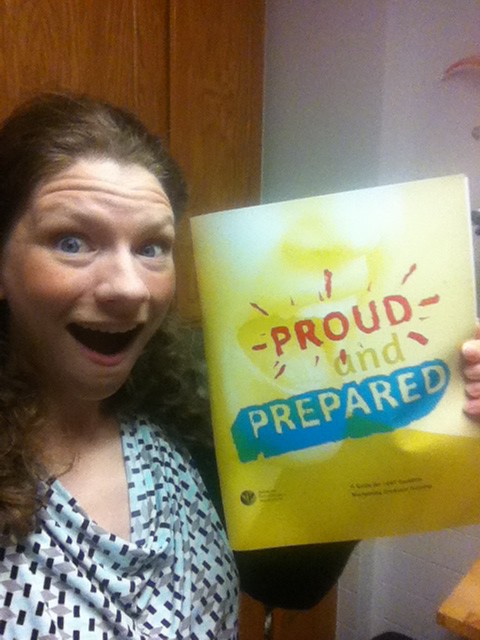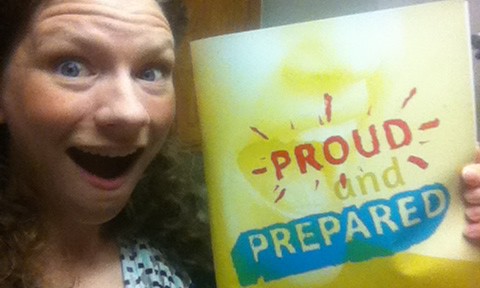Jennifer M. Doran, M.A.
Like so many of you, my reactions to the Hoffman Report ranged from shock, to disgust, to outrage. I couldn’t wrap my head around the report and its findings – that some senior leaders at APA colluded with the Department of Defense in order to allow psychologists’ involvement in settings where detainees were being tortured. As someone who has spent the past 5 years involved in the leadership of APA, I questioned my own judgment, sense of respect for the organization, and passion for engaging in its work. My outrage gave way to embarrassment and sadness. What I previously viewed as a professional achievement now felt like something to hide and run away from.
To make matters worse, the formal responses by APA felt hollow and woefully insufficient. I didn’t see my outrage reflected by the organization, and felt anger in response to what appeared to be “managed” communications. Such was my mindset as I traveled to the 2015 Annual Convention – with a heavy heart, and a suitcase full of disappointment.
But then I arrived. I sat in APA’s Council meeting among many colleagues and friends. And what I saw surprised me. Despite the stress and horror of everything that had transpired, I witnessed the most civil and respectful Council meeting that I had seen over the past three years. I heard passionate pleas for action, personal stories and perspectives on the underlying thread of racism in what had transpired, a range of emotions, and a general will to do good and correct the course of APA. When resolution NBI 23B passed (instituting a policy that clarifies the definition of torture and preventing psychologists from participating in interrogations where detainees are not afforded Constitutional protections), via a verbal roll call, I watched the room erupt in excitement. In a flurry of emotion hugs, cheers, and tears followed. This moved me.
Throughout the convention I witnessed a similar constructive and emotional tone. I heard graduate students share and process their reactions in the APAGS town hall, and the views of the larger membership in the general APA town hall. I watched leaders reflect, listen, feel, and (most importantly) truly show remorse and apologize. Through these events, I felt inspired by the genuine desire to take strong action, correct the problems in APA, and address the horrific transgressions that were perpetrated.
I am still outraged. But that outrage is now blended with small glimmers of hope. I believe that there is much work to be done. “Fixing” what transpired goes far beyond the torture issue alone; rather, such a task necessitates addressing larger cultural problems deeply embedded in the organization. Issues of transparency, collaboration, power and privilege, checks and balances, and the disconnect from the voices of the membership must be addressed. This is no small feat.
But I can see a better APA. An APA that is truly a members-first organization; an APA that prioritizes its values and human rights above other interests, such as prestige and profit; an APA that strives to be a force of good in the world above all else.
And building that APA will take time. It will take strong, dedicated, impassioned leaders to help steer the ship back on course, to rebuild the foundation that has fallen. When I first read the report, I (like many) considered leaving APA. Did I really want to be part of an organization where such things occurred? No, I could not stay.
But then I realized that I had to. Change can only be made by those who are outraged, by those who wish for change to occur. If you choose to leave the table (via your membership or your activity in leadership), you give something up – your voice, which is worth holding on to. For if the most outraged among us – if those who truly value social justice and human rights – choose to leave, change will not occur. We need to stay, and stay loudly.
APA needs the perspectives of graduate students and ECPs to help shape what it will become. It is our future at stake, and our voices must be part of the dialogue. Our outrage can be productive, particularly when combined with passion, hope, and a vision that we can heal. This is why I am choosing to remain a part of the organization. For only with our collective voices can we advocate for a better future – for APA – and, more importantly, for psychology.
To keep up to date on the Independent Review and the actions of APA and APAGS, see: http://www.gradpsychblog.org/ir/#.VdPlFrGFNZQ.





 Texan I met in Houston, Kolby, and we have an adorable 3 year old pup named Hadley. In my free time (yes, you do get some free time later in training) I love to walk with Hadley, cook, garden, and binge watch TV shows. I love food and traveling and am greatly looking forward to the days Kolby and I can experience more of the world together.
Texan I met in Houston, Kolby, and we have an adorable 3 year old pup named Hadley. In my free time (yes, you do get some free time later in training) I love to walk with Hadley, cook, garden, and binge watch TV shows. I love food and traveling and am greatly looking forward to the days Kolby and I can experience more of the world together.